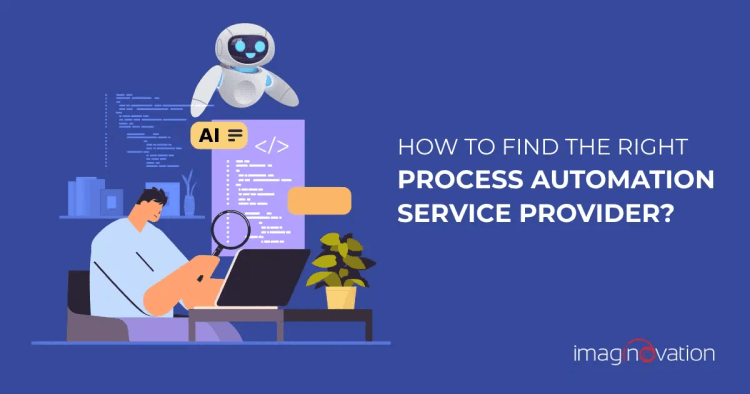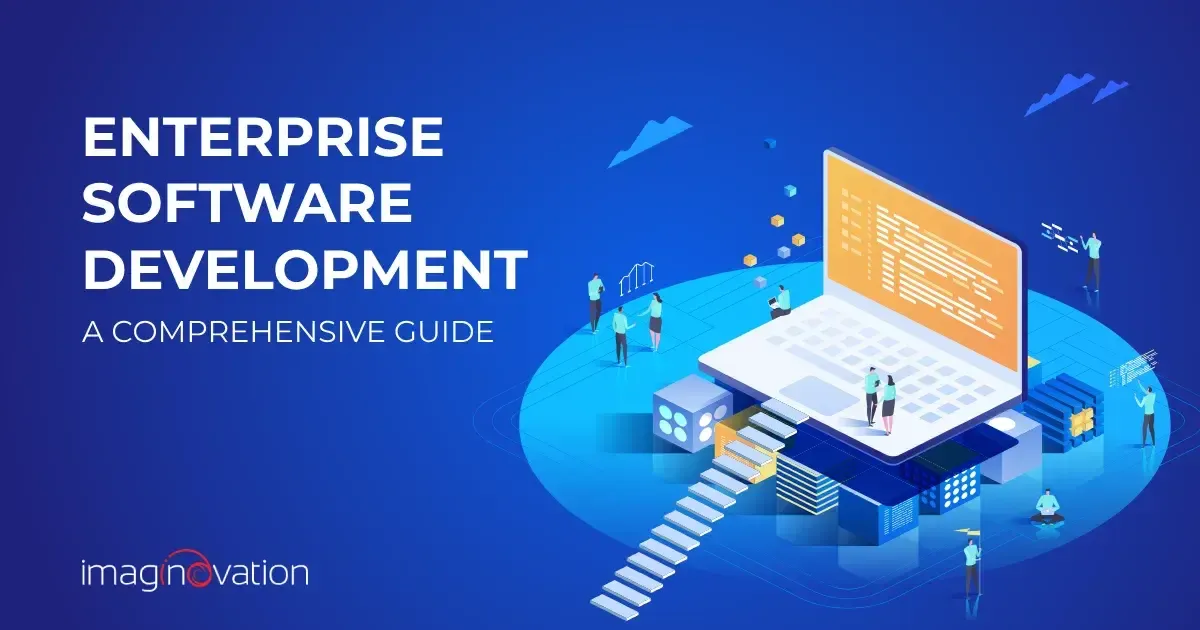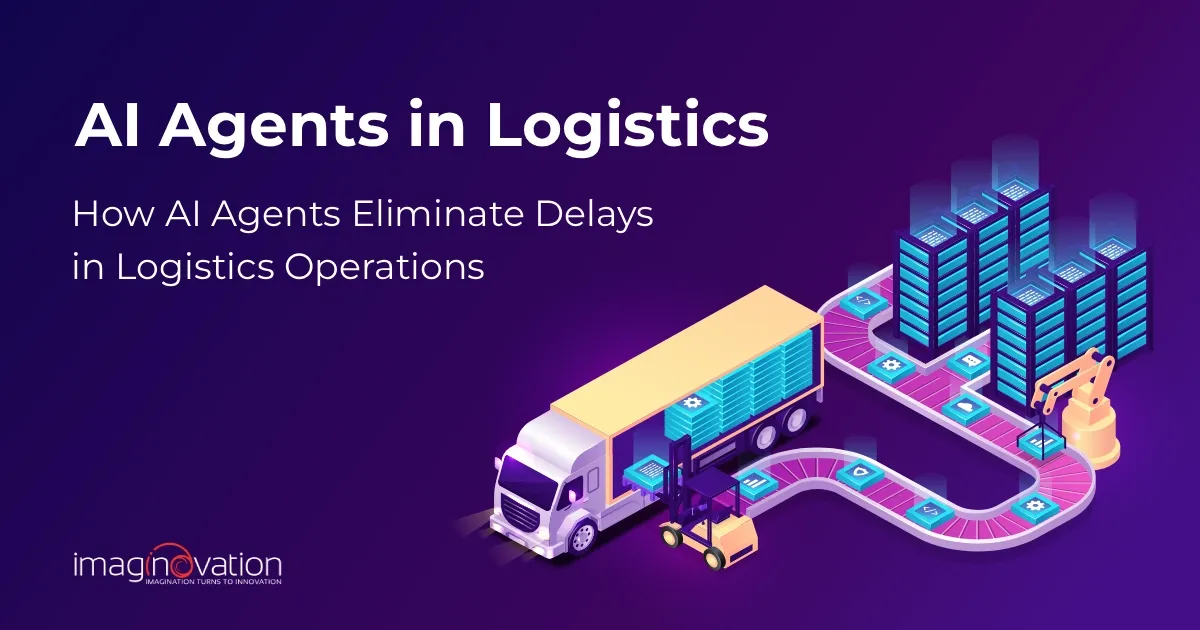To estimate the cost of building a website or an app, use our app cost calculator tool.
The journey toward embracing process automation services is thrilling and can help companies become more efficient and agile. Today, plenty of automation solutions make the acceleration of automation transformation effortless.
Moreover, with rapid evolution, process automation solutions leverage technology to drive revenue and thrive in competitive markets.
Companies can now enjoy increased productivity, cost reduction, and better customer experience. What one needs—is a proficient process automation service provider! They will set you on track to explore the potential benefits of process automation and focus on myriad opportunities.
What one needs is a proficient process automation service provider!
Types of Process Automation Services
Business process automation comes in multiple types, which can easily confuse business owners looking to adopt robust solutions. Vendors have created several "flavors" to suit the needs of various businesses, similar to a Top Chef creating a variety of dishes.
With such a wide variety of process automation services, it is vital to understand the differences. These insights will help you choose the right one for your business needs.
1. Robotic Process Automation (RPA)
RPA is an advanced form of business process automation that works on a defined set of instructions for a robot (or bot) to perform. Ultimately, it is automating some of the most mundane and repetitive tasks and processes in the workplace. The software can comprehend a workflow with numerous steps and applications, making it easy to do repetitive tasks across systems and applications.
RPA works best for businesses that have high-volume and repetitious tasks. For example—data entry or customer support request routing. For those who are planning to consider RPA solutions, here are some quick questions:
- Do the tasks have sufficient volume?
- Is the process rule-based?
- Does the process have defined inputs and outputs?
- Does the process have a predefined trigger?
2. Process Automation
Process automation is the use of software technologies that can help automate complex business processes. Plus, it can automate functions to help you accomplish defined goals. For example—onboarding employees, providing customer service, or developing a product.
It works around three functions, which are:
- centralizing information
- automating processes
- and reducing the requirement for human involvement (input for people).
3. Business Process Automation
Business process automation (BPA) increasingly uses AI and machine learning technologies to automate repeatable, multi-step business transactions. They are often complex and typically integrated into data systems or connected to APIs.
BPA streamlines processes and helps enterprises boost efficiency, develop new business models, and improve productivity. Examples of BPA include Customer service, Employee onboarding, Marketing and Sales, and so on. It isn't restricted to a handful of functions and can automate your specific business processes. It includes workflow management, process monitoring, version control, and more.
4. Hyper Automation
Hyperautomation goes far beyond mechanizing repetitive manual tasks. It involves automating business processes through AI, ML, Big Data, NLP, and RPA.
Hyperautomation is a significant factor in digital transformation, offering business intelligence. It focuses on tasks with a greater value, such as critical thinking, decision-making, and interpreting data.
5. Intelligent Automation
Intelligent automation (IA) has several customer-facing benefits. IA uses ML and other cognitive technologies to suggest data-driven insights to your business. It uses customer data and offers a better user experience.
For example, with RPA, let's say a bot can automatically categorize users in a CRM based on how they subscribe to a newsletter. With IA, you can take the process to the next level. You can involve using subscriber interaction data (such as clicks, bounce rate, and so on) to add value-based suggestions for future newsletter content.
Also Read: A Comprehensive Guide to Building a Smart Home Automation App in 2024
Key Factors in Choosing a Service Provider
After carefully weighing the pros and cons of each type of process automation, you can select the one that best suits your business needs. Most assuredly, the right process automation service provider can help you achieve phenomenal success. Here are a few things to consider when selecting your service provider.

Aligned to Strategic Intent
For a successful process automation journey, it will help to choose partners who can meet your business objectives. Start with chalking out an automation journey map, then communicate it with the process automation vendor of your choice. When companies map out their automation initiatives for long-term growth, they will achieve more success.
Experience and Expertise
For a successful implementation of the process automation solution, remember to focus on the service provider's domain expertise and experience that they bring to the table. Service providers may have implemented solutions in a specific industry, such as insurance, IT, healthcare, or banking. Further, the firms may have worked extensively on a particular technology, bringing more value to the specific needs of clients.
Nevertheless, when selecting the vendor, consider firms with broader experience because such firms have diversified exposure, leading to more exhaustive solutions.
Choose to hire reputed RPA vendors who have the necessary technical expertise. It can be backed by state-of-the-art digital infrastructure. The vendor of your choice having the requisite transformation capabilities can help you achieve your strategic goals.
Speed and Scale
When developing an automation solution, the service provider must be able to explain how the organization can maximize the return on investment. Most often, a lack of material results can dampen the spirits, leading to the failure of the RPA initiatives. Hence, the vendor must be able to help with concrete results within a defined timeline.
Communication
One of the most critical factors when choosing a service provider is to focus on open and effective communication. When implementing RPA projects, open communication can mitigate the possible risks. It will clearly outline the scope of work and further work towards the execution of the work. Moreover, chart out potential language barriers and time zone differences that may help implement the RPA solutions successfully.
Quality
Establishing and maintaining coding standards or shared utilities and templates helps for quality services. What will make automation easier is to consider facets such as reusing code, simplifying testing, and making automation easier to support production.
It is beneficial to opt for certified RPA providers. The vendors focus on developing and implementing top-quality products and significantly reduce TTM (time to market) with innovative solutions.
Training and Mentoring
Yet another critical component is to check the vendor's capabilities to make you self-sufficient. How does the vendor consider supporting your people in terms of learning? What are their abilities to train? Considering these facets will help in selecting the vendor.
Security
RPA vendors must discuss and work on incorporating security features. There can be data leakages and fraud when developing any solution. Thus, to curb these scenarios, the vendor must work on including security measures and create a security governance framework to mitigate risks.
Pricing
It is vital to ask for a quotation because it will help to get a fair ballpark figure on the cost structure. Typically, RPA vendors follow the time and materials cost structure, which helps choose the right partner without any cost-related issues. Thus, consider choosing a partner who has a transparent risk-sharing model.
Evaluating Potential Providers
You will undoubtedly consider numerous factors when selecting the right process automation service provider. Here’s the thing: hiring a proficient partner can help you achieve astounding success. Let’s look at some key factors that will aid in the evaluation process and ensure you hire the right partner.
Partner Ecosystem and Community Support
It is essential to consider facets of scalability that will help you with a sustainable solution. Thus, evaluating the vendor ecosystem is critical because it helps weigh the dependency of the partner in terms of the development of the solution. A cohesive ecosystem that can reduce dependence on the vendor, such as developing or training the in-house team, will help integrate future process automation tools.
Read Case Studies
Look for success stories and case studies to get a sense of how the vendor's software has worked for other businesses. The valuable insights can help learn the vendor's strengths and weaknesses. Plus, it will help you get started on your digital transformation journey.
For example, in their Finance business function, Quad (formerly Quad/Graphics), an American commercial printing company, could automate their payment processes in almost 2.5 months, resulting in faster turnaround time.
Such case studies or success stories help to understand various facets like the benefits derived, the business function in which automation was considered, and the implementation time frame.
Check Testimonials and Customer Reviews
When shortlisting RPA service providers, it will help to get customer reviews and go through testimonials. The inputs will help to get an idea about the vendors' capabilities. Plus, it will help to gauge how the vendors meet challenges or address complexities.

Check for Accessibility Standards
The BPA solutions must be usable by everyone with different disabilities, abilities, or assistive technologies. Thus, consider evaluating whether the potential vendor will be automating with WCAG and considering factors such as speech recognition, clarity, volume, and language. The vendor must develop robust BPA solutions for you that are both inclusive and compliant.
Dedication to Technology Innovation
Innovation is one of the best practices that help gain a competitive edge. It may help to understand the prospective vendor's culture and focus on continuous innovation. A vendor dedicated to technology innovation can help you build creative, game-changing solutions using disruptive technologies.
Consider looking for a competitive partner who can help with major product releases once a year and minor releases with more frequency. Furthermore, the potential vendor can be asked to share their product development roadmap. It will help to understand plans for incorporating future technological improvements.
Generous Customer Support
It is vital to garner around-the-clock implementation and technical support. It may help to look out for a vendor who offers such support and offers demos and email and phone support throughout the RPA journey. It is pertinent that the RPA vendor must meticulously handle the changing customer demands over time.
Commitment to User Experience
In addition, it will help to look out for a potential partner who is deeply committed to augmenting both user and customer experience during the process automation journey. Check the capabilities of your vendor so that your business objectives align with their offerings.
Checking the Process Maturity
Process maturity is a critical gauge of the prospective vendor's process health. It is a measure of how well-defined and controlled the vendor's processes are. Select a vendor with a high level of process maturity, where you are assured that they follow procedures, and there is continuous process improvement. Further, it can lead to higher product quality, resource efficiency, and customer satisfaction.
Having a Change Management and Execution Plan
The prospective vendor must have a change management plan for the project. Having a clear plan is one of the best practices, which helps set the RPA implementation roadmap and can safeguard your RPA journey and minimize potential pitfalls.
Avoiding Common Pitfalls
Process automation services fail to deliver expectations. Let's look at common pitfalls that will help bridge the gaps between reality and expectations.
Organizational Pitfalls:
Lack of leadership buy-in: A buy-in from key decision-makers helps with the successful implementation of the process automation solution. The lack of it may lead to resistance to change and allocation of insufficient resources to the project, leading to delays or failure.
Solution: Ensure a buy-in from all key stakeholders for the investment of the process automation solution.
Unclear responsibilities: When organizations fail to define roles and rush into training, responsibilities can clash. It can lead to confusion amongst human supervisors, who can get confused with their actual roles. The risks with operational execution are high when roles and responsibilities aren't well-defined.
Solution: To build a robust solution and receive quality process automation services, it is critical to have a detailed plan where resources know their responsibilities.
Lack of clear RPA strategy: It is vital to have a well-defined process automation strategy to avoid any implementation failures. A clearly defined strategy, which includes change management plans, communication plans, and IT infrastructure details, helps to put process automation solutions into practice.
Solution: You must establish a strategy to adopt RPA successfully. It will help establish the appropriate metrics for success. Plus, the strategy ensures that the project is aligned with the organization's goals.
Insufficient budget: The project may fail without apt accounting of resources and lack of budget. Thus, a lack of foresight and planning can lead to failure at the implementation stage.
Solution: Estimate the time and cost savings and calculate the ROI for presenting the leadership team with a solid plan for a go-ahead on the process automation solution and vendor hiring.
Pre-Implementation, and Post-implementation Pitfalls
Security concerns: Security is at the core of any business. Depending on the vendor, you can set expectations to safeguard the platform, users, and data from being accessed. Sometimes, if the highest standards of protection aren't adhered to, it can lead to harsh violations.
Solution: Consider hiring a vendor who can offer maximum protection with SOC 2 Type 1 and TYPE 2, ISO 22301, ISO 27001, and so on protection.
Choosing the wrong process for automation: Yes, you're right! RPA can produce impressive ROI. However, it may not get the desired results if you automate the wrong processes.
Solution: Carefully examine your processes to get the most out of your process automation investment
Impossibility of scaling: What happens when the process automation solution can't be scaled? The project would offer limited functionality. Deloitte reports that only 8% of organizations can scale their RPA initiatives. The statistic highlights how organizations stay restricted in implementation when scalability isn't considered.
Solution: The best way is to use advanced analytics and disruptive technologies to address the scalability needs of the process automation solution.
No consideration for maintenance: The process automation solution will need to be updated occasionally. With insufficient maintenance, it could result in errors.
Solution: Ensure that the vendor adheres to maintenance to enjoy a solid performance.
Wrapping Up
Many organizations have already begun their process automation journey. There may be a sense of urgency around automation to accelerate digital transformation goals. A surefire way to achieve phenomenal success is to hire the right process automation service provider.
Build Powerful Process Automation Solutions with Imaginovation
A robust process automation solution can have a profound impact on your business. To build a game-changing solution, talk to us.
We are an award-winning web and mobile app development company in Raleigh with extensive experience developing spectacular process automation solutions.
Let’s talk.











